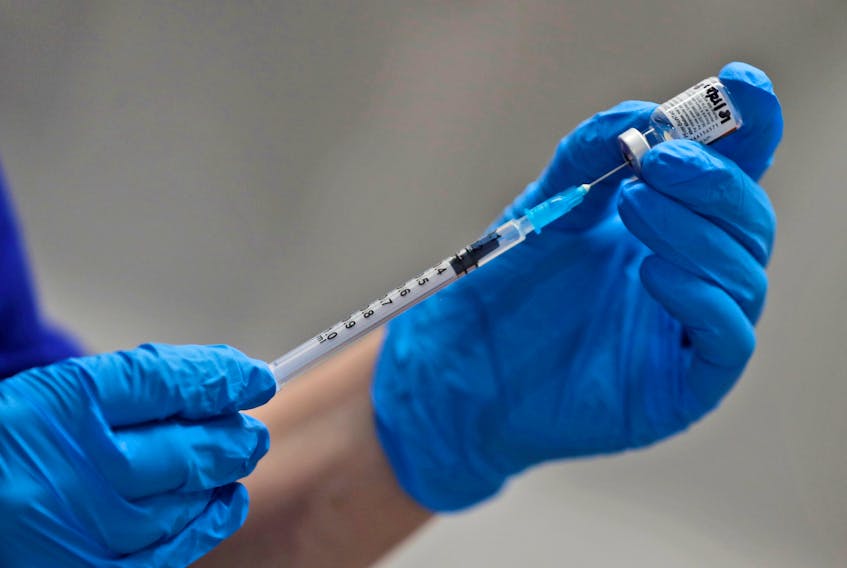A Halifax epidemiologist sees light at the end of the pandemic tunnel but cautions that we’ve got some travelling to do yet.
Dr. Susan Kirkland of Dalhousie University’s department of community health and epidemiology said the Pfizer-BioNTech vaccine rollout slated for next week in the Atlantic provinces is a welcome step forward.
“I’m very optimistic,” Kirkland said in an interview Wednesday. “I think that this is the first in a number of vaccines that will become available to us, and from the information that we’ve received so far it looks as if it’ll be both effective and safe.”
Pfizer says the vaccine is effective in 95 per cent of trial subjects when somebody gets a second shot 21 days after the first.
Nova Scotia will be going with the two-shot regimen beginning next week with health providers who work in COVID-care settings in the central health zone.
The province will receive 1,950 doses of the Pfizer vaccine on Dec. 15. People who work in intensive care units and emergency rooms, COVID hospital units and long-term care staff at COVID treatment units will get those shots.
The next group will be long-term-care residents and staff, and eventually the program will move to people over 80 and down in five-year age increments to 75-year-olds and so on.
As Nova Scotia receives more vaccine - it’s hoped we’ll get about 150,000 doses from various providers by April - the immunization will expand to health-care workers who don’t work in COVID settings and other essential workers.
It will likely be the summer of 2021 that shots can be made available to the broader community, said Dr. Robert Strang, Nova Scotia’s chief medical officer of health, at a briefing Tuesday.
Low numbers in Atlantic Canada
Kirkland said she’s happy with Nova Scotia’s vaccine rollout plan given the logistical challenges of having to store the vaccine at -70 C.
“I think it makes sense to locate this in the central region and move out from there. And given the small number of vaccines I think doing health-care workers first and then rolling out to long-term-care residents makes sense,” said Kirkland, who specializes in geriatric medicine.
Fifty-seven of the 65 COVID-19 deaths in Nova Scotia were in nursing homes, including 53 at Northwood in Halifax.
So far in the second wave that began Oct. 1 there have been no deaths and fewer cases.
That’s in contrast to provinces such as Quebec and Ontario where thousands of new cases and dozens of deaths have been reported in recent daily briefings.
Kirkland credits good public health policy and the co-operation of Atlantic Canadians with pandemic protocols such as masking and social distancing.
“There is really strong public health messaging” in Nova Scotia, she said. “I see a provincial government who’s willing to let public health take the lead and I see a very responsive public.”
'Safe vaccine'
Kirkland acknowledges there will always be a minority of people who are skeptical about vaccines. These attitudes range from the anti-vaxxer margins to hesitancy about safety among the general public.
When it comes to the Pfizer drug, “the indications are that it’s an entirely safe vaccine. It’s not a live vaccine, which I think is good in terms of safety issues and also side-effects. I’m hoping that the public will understand that this has gone through all the regulatory bodies that it needs to and that it is endorsed by public health and all of the health officials across the country.”
While she cautions that we’ll have to abide by public health measures “for a very long time” Kirkland said the epidemiological trends bode well in Atlantic Canada.
“We see the number of active cases decreasing by day and we’re not seeing an increasing spike in the number of new cases, despite a lot of public testing for both symptomatic and asymptomatic groups, as well as groups that have been exposed and groups that are unaware of their exposure,” she noted.
“So I think that we are in a good place right now. … It does seem like light at the end of the tunnel.”









